Women take the stage in Big Science Business Forum 2022
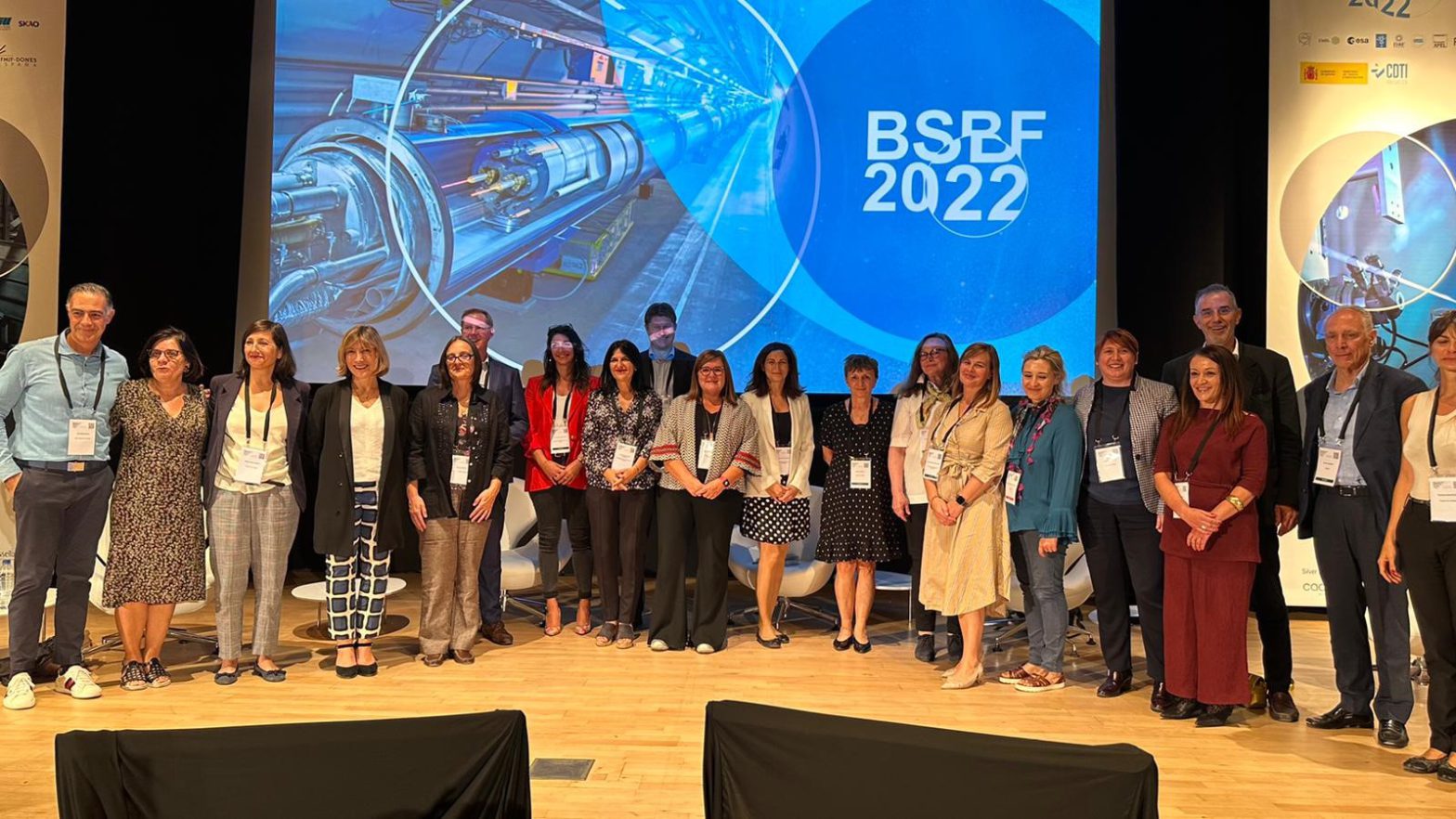
Representatives of F4E, CDTI, Ministry of Science and Innovation, members of the panel discussion at the Women in Big Science session, BSBF 2022, Granada, Spain, October 2022. © F4E
In its second edition, the Big Science Business Forum (BSBF) 2022 brought together approximately 1500 people in the city of Granada, Spain. Although originally planned in 2020, the global pandemic obliged CDTI to postpone the event by two years. Delegates from science organisations, research foundations, companies and large-scale infrastructures were present to hear the latest in procurement, business opportunities and technology transfers. The wait for one of the biggest meeting points was officially over. Traditionally this is a venue where business and networking go hand in hand. But where does talent and human capital fit in all this, especially if they are not always equally valued?
For the first time ever, thanks to the collaboration of F4E and CDTI volunteers, a session on “Women in Big Science” shed some light on the systemic and organisational challenges women experience in this context. A panel of high-profile speakers consisting of Teresa Riesgo, Spain’s Secretary General for Innovation, Caterina Biscari, Director of ALBA Synchrotron, Geraldine Naja, Director of Commercialisation, Industry and Procurement at the European Space Agency, Francesca Primas, Full Astronomer at the European Southern Observatory, Maria Vega, Vice-President of Business Development and Investees of ENSA, gathered to exchange views on the subject with the skilful moderation of Elizabeth Pollitzer, Director of Portia.
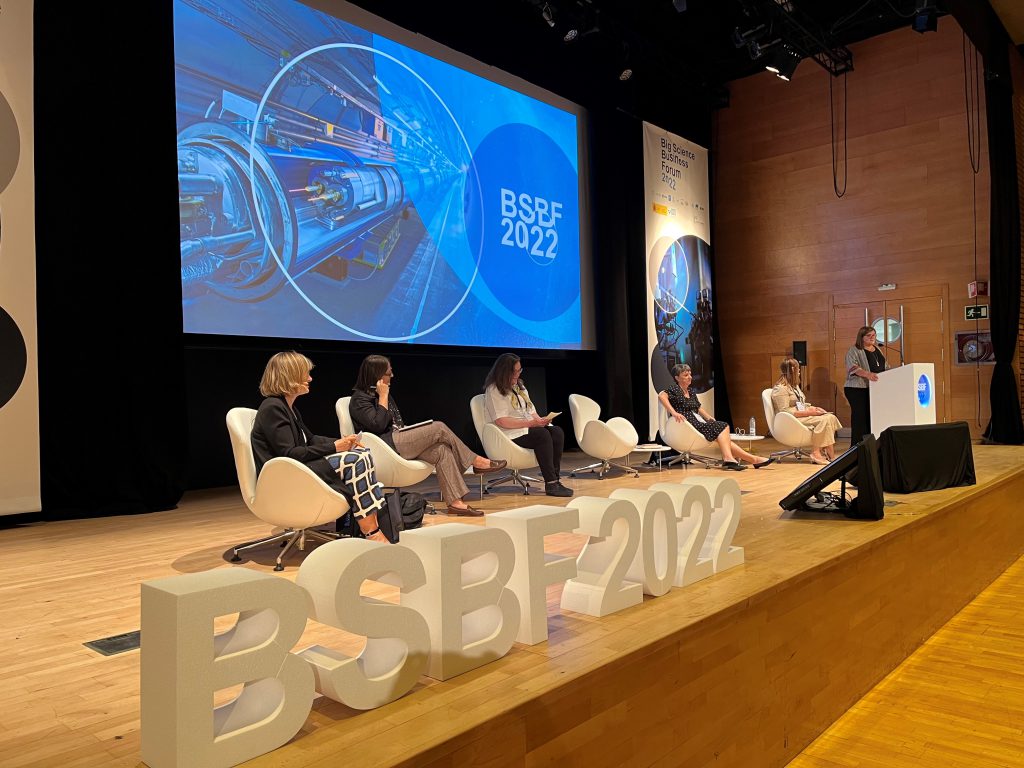
Teresa Riesgo kicked off the discussion highlighting the need for more data to understand the full picture and some of the stumbling blocks. For instance, she reminded the audience that 51% of PhD holders are women but only 23% are professors or Principal Investigators. What are the reasons for this low figure? What happens to the rest of women? Are there societal explanations and legal remedies to fix this issue. On the one hand some of the indicators suggest that the picture is getting better in terms of opportunities and career progression, but on the other, this is not across all professions and disciplines particularly in Science, Technology, Engineering and Mathematics (STEM). We need networks to collect data, exchange good practice and analyse each situation so that we arrive at a toolbox with solutions.
Caterina Biscari remained firm on not being complacent with indicators even when some paint a more positive picture. The gap in STEM says a lot about the role of school and education acting in an inclusive manner, inspiring women to follow a career in these fields. Young girls and women need to understand that doing science is a right and it’s for the benefit of all. She also took the opportunity to remind all that there are many job profiles beyond engineering in big science that we should carefully consider how to promote them. Gender equality must be a quality for each organisation.
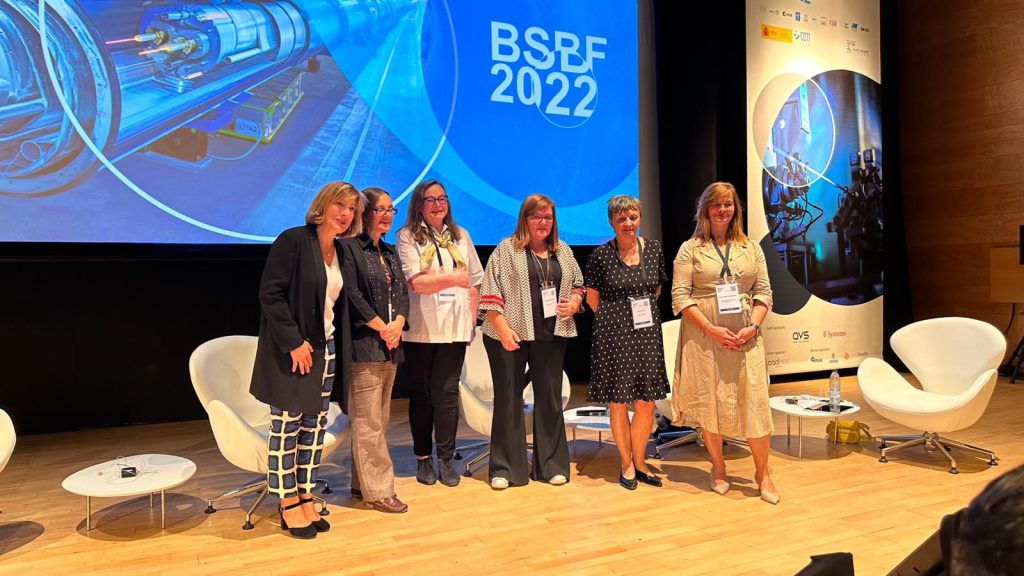
Geraldine Naja offered an account as to how ESA has tried to tackle the issue of gender balance in recruitment, retention, and promotion. Female representation is reinforced in all panels interviewing candidates, and the aim is to achieve female representation of 30%-40% in management board positions. Procurement has also acted as a carrot and stick in pushing ahead with a fairer gender distribution by asking suppliers to provide gender diversity plans as part of their contractual obligations. In her opinion we cannot turn a blind eye. We need to act, address discrimination at each level and strive towards a more inclusive work environment that allows women to unleash their full potential.
Francesca Primas explained that structural change remains the first entry point to tackle this issue. We need a top-down and bottom-up approach. Management needs to be involved, be visible and stay engaged. The fact of the matter is that we do not have too many sceptical people when it comes to this cause. But we have many neutral people, who could become active supporters, and this begs for more communication, awareness, and education.
Maria Vega shared her experience from industry commenting on the stereotypes that still prevail between women and men, plus the gendered roles in private life, which tend to penalise women by taking a disproportionate number of responsibilities. In her opinion, industry is obsessing with technical quality without paying too enough attention to gender, which is a quality on its own merit.
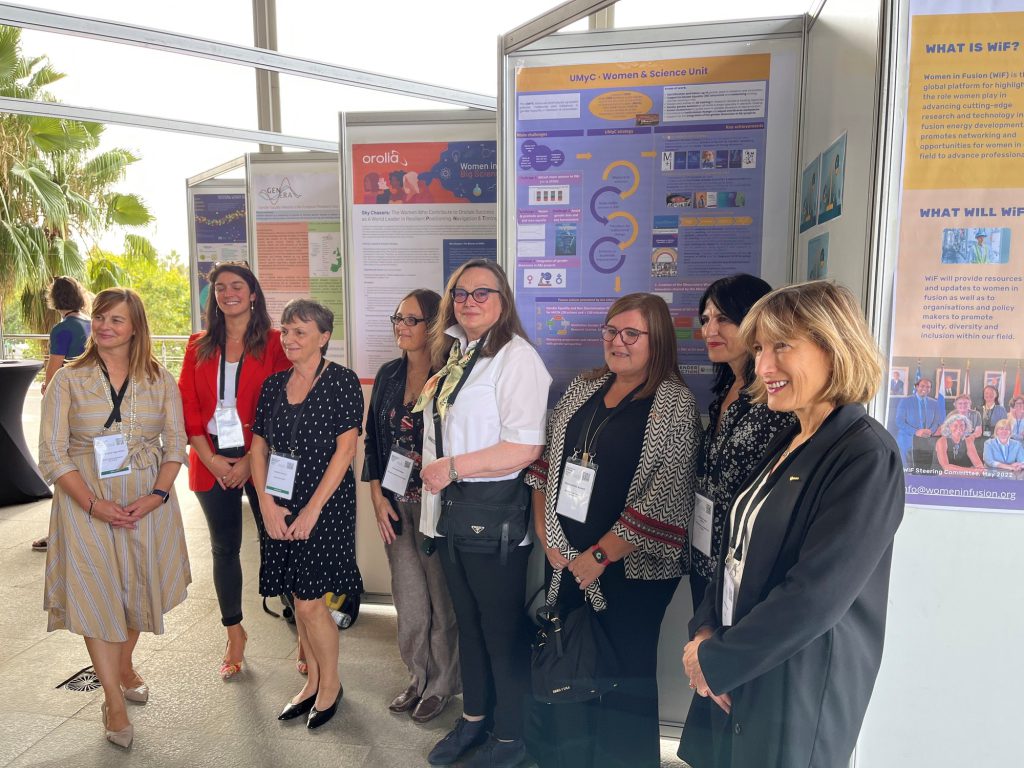
The panel had the opportunity to hear from Elizabeth Pollitzer on the 13 submissions received in the format of posters, as part of the recognition awards in promoting the role of women in big science. Organisational initiatives, collaborative frameworks and the societal actions were amongst the examples of good practice received by the different applicants. In her view, much has to do with structural change in an organisation and there a few entities that are tackling this effectively. However, in other cases, further adjustments and improvements are needed to achieve tangible results.
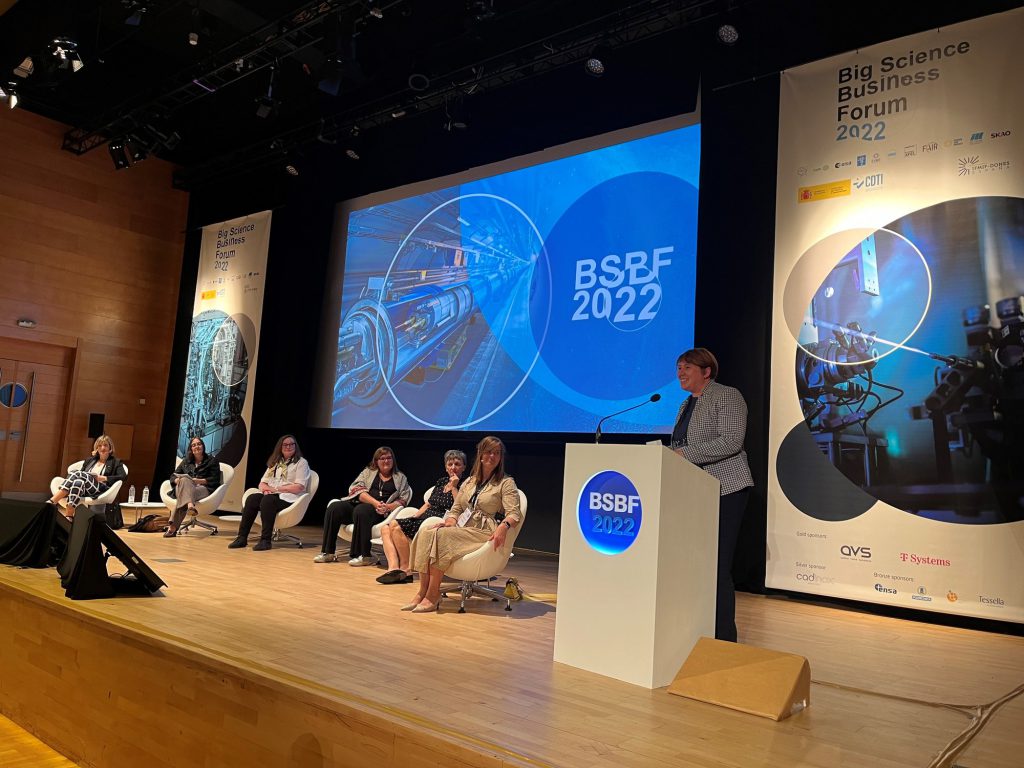
Francesca Fantini, representing the F4E- CDTI group of volunteers, acting as organising committee, explained how this journey started years ago putting together this session and encouraged more entities to get involved. She thanked all contributors and renewed the commitment to follow up with this action in future. The initiative received praise from the organisers who expressed the wish to carry on with this session at the next BSBF 2024 in Trieste. The fruitful interaction came nearly seven months after the webinar organised by F4E and CDTI which broke all registration records for an online BSBF seminar. For more information on this initiative and to view the submissions to the recognition awards click here.